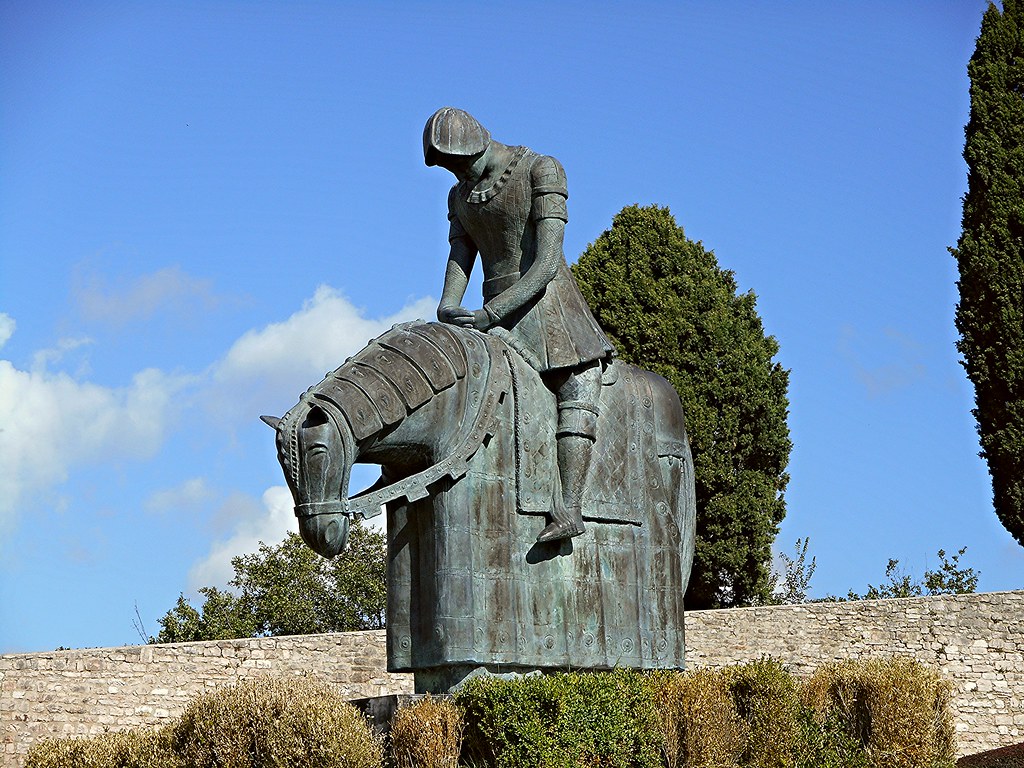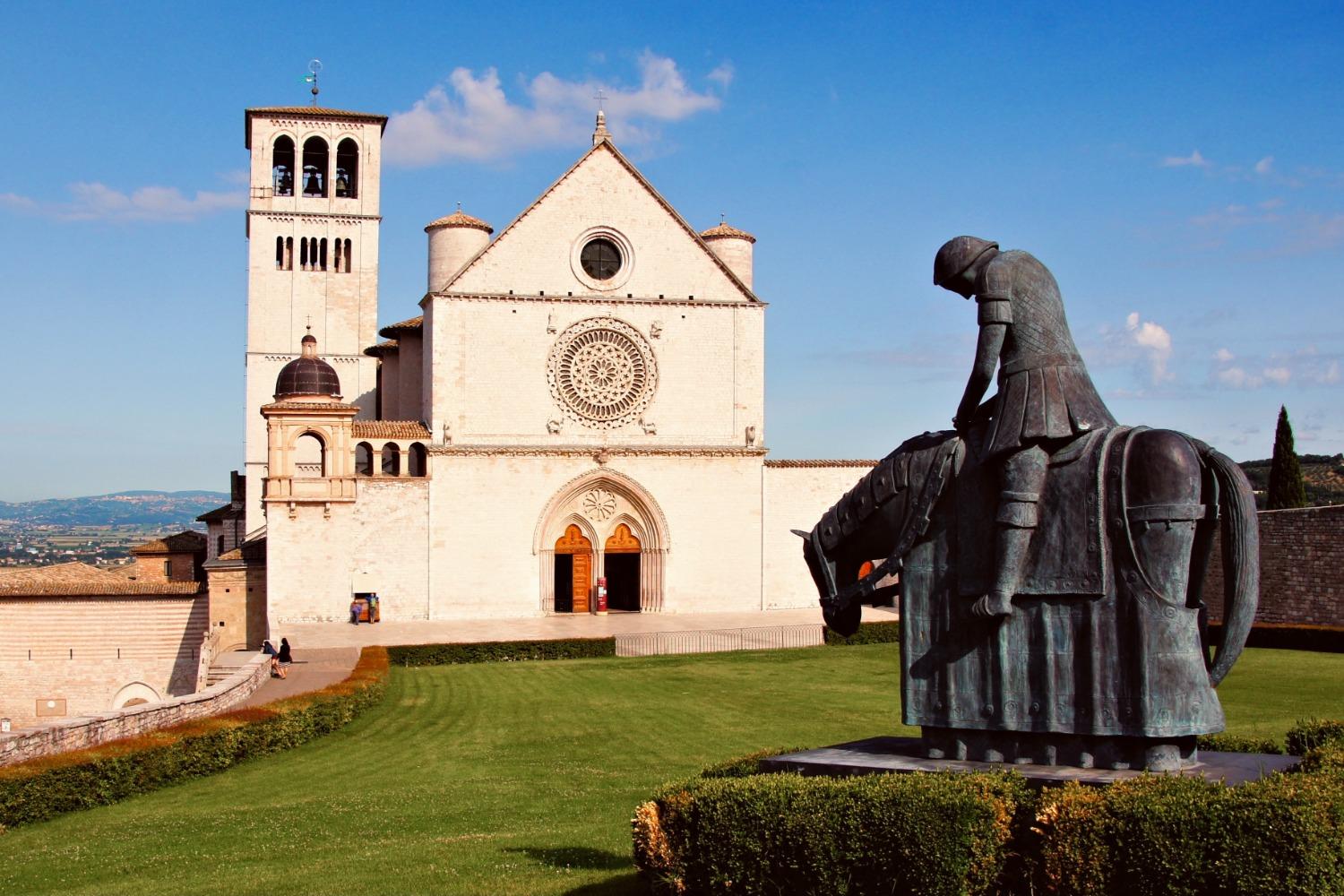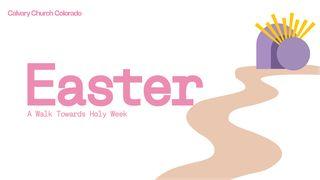Last Words: A Lenten Meditation on the Final Sayings of Christ, Week 7نموونە

The Sixth and Seventh Words: “It Is Finished!” and “Father, Into Your Hands I Commend My Spirit”


Il Ritorno di Francesco (The Return of Francis) (multiple views), Norberto Proietti, 2005. Bronze. Basilica of Saint Francis of Assisi, Assisi, Italy.
"All Creatures of Our God and King" from the album Before the Throne. Composed by St. Francis of Assisi (poem), William Henry Draper (music). Performed by The King’s Men.
“Hosanna (Be Lifted Higher)” from Palm Sunday Worship Set by Israel Houghton and Sidney Mohede.
Week Seven—Holy Week: The Sixth and Seventh Words: “It Is Finished!” and “Father, Into Your Hands I Commend My Spirit”
Holy Week is a significant time the church sets aside each year to commemorate and ponder both Christ’s sufferings as well as His great victory over death. This week we will examine the final two sayings Christ uttered from the cross: “It is finished” and “Father, into Your hands I commit my spirit.” The word “finished” does not mean “it’s over,” but rather “it’s accomplished, completed, achieved, consummated.” This was not a death cry, instead it was a signal of triumph. When Christ shouted, “It is finished,” the plan of salvation reached its crescendo—sin and death were trampled down and Satan was defeated. Author Brian Zahnd writes, “Christ crucified is Christ glorified. The cross is not shame; it was and is glory. It was not defeat; it was and is victory. It was not failure: it was and is the salvation of the world.”
Christ came to do the Father’s will. The cross was our Lord’s focus from the beginning of His earthly sojourn. “My food is to do the will of Him who sent Me, and to finish His work” (John 4:34). Christ was the only sin offering that could and did satisfy God the Father’s righteous demands. All of humanity’s sins, past, present, and future, were transferred to Christ, who graciously bore the ugliness and degradation of it all for us. On the cross unimaginable horror was turned into glorious hope. The “Lamb of God who takes away the sin of the world” had incredible mercy upon us. “It is finished” but it is not yet over. Richard John Neuhaus explains, “It will not be over until every knee shall bow and every tongue confess that Jesus Christ is Lord. That triumphant note does not mean the simple displacement of suffering with victory…The only way to the light is the way he took, the way through the heart of darkness, the way of the cross. That is where he is to be found, that is where he finds those he takes to the Father.” Hallelujah, what a Savior!
The last powerful word Christ vocalized as He bowed His head in death was a quote from Psalm 31:5, NASB, “Into Your hand I commit my spirit.” In response, the Roman centurion immediately “glorified God, saying ‘Certainly this was a righteous Man!’” (Luke 23:47), while the whole crowd who had witnessed Christ’s death, returned to their homes in distress, “beat[ing] their breasts” (Luke 23:48). “Into thy hands I commit my spirit” has been recited and echoed by observant Jews and dying Christians since it was penned in around 445 BC. It serves as a Judaic bedtime offering to this day. The children’s prayer “Now I lay me down to sleep; I pray the Lord, my soul to keep. If I should die before I wake, I pray the Lord my soul to take” is a variation on the seventh word. The prayer appeared in a New England primer in 1731, but some scholars believe that it dates back to the eleventh century. Every day, in all that we do and say and as our lives draw to a close, we should beseech the Lord to take our spirit and let it be forever consecrated to His honor and glory. By His example, Christ has taught us how to live, but also how to die.
Poetry:
"The Shepherd Boy's Song"
by John Bunyan
He that is down need fear no fall,
He that is low no pride;
He that is humble ever shall
Have God to be his guide.
I am content with what I have,
Little be it or much;
And, Lord, contentment still I crave
Because Thou savest such.
Fulness to such a burden is
That go in pilgrimage;
Here little and hereafter bliss
Is best from all to age.
HUMILIATION AND EXALTATION
Last summer, a group of Biola faculty, staff, alumni, and students completed a pilgrimage that ended at the medieval Basilica of St. Francis in Assisi. The white limestone facade and rose window overlook a lawn on which stands the artwork for today. Sculpted by a local Italian artist, the life-size statue represents Francis’s return from the war. The spirited young man came home in apparent disgrace, a failure at being a soldier, but in obedience to the word of God, who told him to return to his city and perform the work that he found there. Desiring only God’s will, Francis followed the instructions. The head of the statue is bowed; Francis does not yet perceive the spiritual reality and splendor of the work that God has planned for his future, artistically represented in the Basilica before the statue.
Francis’ experience is a small echo of the one who deserved the greatest exaltation and yet suffered the greatest humiliation. Jesus came in triumph, riding the donkey into Jerusalem, but the crowd turned against him, and he suffered public ridicule, rejection, and a death that was purposely designed to cause the most extreme pain and degradation. Philippians recounts that Jesus humbled himself, being obedient to the will of God even unto death. However, he rose from the dead, was exalted by God, and given the name above every name. Together with Isaiah Templeton in our song for today, we cry hosannas to Christ our king. In his life and death, Jesus re-envisions our notions of success. He calls his disciples to follow his path of humiliation and exaltation.
We find our work in whatever place God has called us, for the accountant in managing finances, the student in spending long hours reading and thinking, the dentist in cleaning peoples’ teeth, or the mother in caring for her child. Once we begin working for God, then we are walking in the path of Christ, and like him, we must be ready for whatever comes. Our efforts may appear mundane, insignificant, or unclear; the results not what we desired or seemingly in vain. Like Jesus and his follower Francis, however, our only concern must be to do God’s will. Every Christian’s life will contain triumphs and disappointments. However, God is still guiding no matter the failures, false accusations, undeserved shame, or suffering that may come in doing his will and his work. When our next challenges come, as they inevitably will, may we remember the figure of Francis, his head bowed in discouragement while God was preparing for him a glorious future, one that would exalt the name of Christ.
Prayer:
Father, as Bunyan reminds us, the humble will have God as their guide. Let us be lowly in obedience to you and bold in doing your will. As we continue on our pilgrimage through life, please give us grace that we might do your work joyfully, leaving the results with you and having the courage to wait to see your ultimate end.
Amen
Dr. Laurie Wilson
Assistant Professor
Torrey Honors College
Biola University
کتێبی پیرۆز
دەربارەی ئەم پلانە

The Lent Project is an initiative of Biola University's Center for Christianity, Culture and the Arts. Each daily devotion includes a portion of Scripture, a devotional, a prayer, a work of visual art or a video, a piece of music, and a poem plus brief commentaries on the artworks and artists. The Seven Last Words of Christ refers to the seven short phrases uttered by Jesus on the cross, as gathered from the four Christian gospels. This devotional project connects word, image, voice and song into daily meditations on these words.
More
پلانە پەیوەستەکان

Running With Perseverance

What We Find in the Dark: Loss, Hope, and God's Presence in Grief

Signs and Symbols Surrounding the Cross: Holy Week Reflections From Palm Sunday to Resurrection Sunday

Our Discipleship Journey: Part 2

Healthy in Him: A 3-Day Devotional for Wellness & Wholeness

Encounters With People

My First Devotional

The Secret Place: 21 Day Devotional

God Cares About You(r Mental Health)
